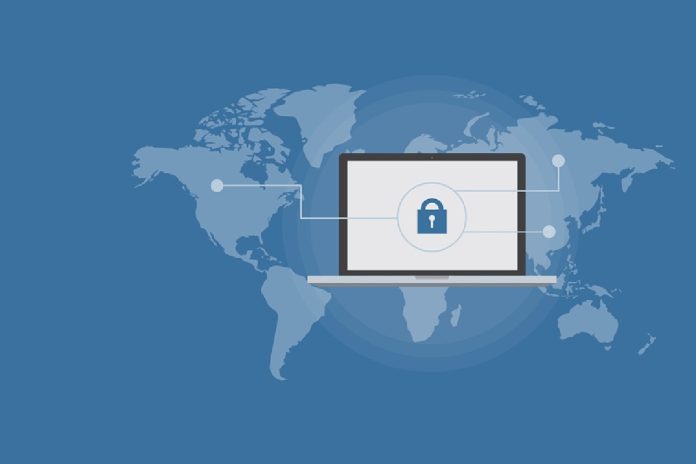Geo-Restrictions – The internet has transformed how we do business, making it easier than ever to reach customers worldwide. However, geographical restrictions can still be a major barrier for companies looking to expand their reach. Geo-blocking, also known as geographical personalization, restricts access to online content based on the user’s geographical location. This can be frustrating for users who want to access content unavailable in their region. Still, it can also be a significant obstacle for businesses looking to expand their customer base. This piece will explore the pros and cons of geographical personalization, why businesses must overcome geo-blocking, and how proxy servers can help companies to reach new markets.
Table of Contents
What is Geographical Personalization (Geo-Restrictions)?
Geographical personalization is a technique websites, and online services use to tailor content to the user’s geographical location. This can include everything from showing different prices or promotions to displaying different content. For example, a streaming service may only offer certain movies or TV shows in certain countries due to licensing restrictions. At the same time, an e-commerce site may charge different prices for the same product in different regions.
The goal of geographical personalization is to provide a better user experience by showing users content relevant to their location. For example, a user in Germany may be more interested in local news and events than a user in the United States. By tailoring content to the user’s location, websites and online services can provide a more personalized experience that will likely keep users engaged.
Pros and Cons of Geographical Personalization (Geo-Restrictions)
Geographical personalization has both advantages and disadvantages for users and businesses alike. Let’s take a look at some of the pros and cons.
Pros:
- Personalization: Geographical personalization can provide a more personalized experience for users by showing them content relevant to their location.
- Better User Experience: By tailoring content to the user’s location, websites and online services can provide a better user experience that will likely keep users engaged.
- Compliance with Local Laws: Geographical personalization can help websites, and online services comply with local laws and regulations, such as data protection laws.
Cons:
- Geo-blocking: Geographical personalization can restrict access to content that users may want, such as news or entertainment content only available in certain countries.
- Discriminatory: Geographical personalization can be seen as discriminatory or unfair, as it can treat users differently based on their location.
- Hinders Innovation: Geographical personalization can hinder innovation by limiting the ability of businesses to experiment with new products or services in different regions.
Why Businesses Must Overcome Geo-blocking or Geo-Restrictions
While geographical personalization can benefit users and businesses, geo-blocking can be a significant obstacle for companies looking to expand their reach. Geo-blocking is blocking access to online content based on the user’s geographical location. This can be a major barrier for businesses looking to expand into new markets, as it can prevent potential customers from accessing their content or services.
Businesses that operate in highly-regulated industries such as healthcare, financial services, or insurance may face more stringent restrictions on data protection or content access than other industries. However, regardless of the industry, overcoming geo-blocking is essential for businesses looking to expand their reach and grow their customer base.
How Proxy Servers Can Help Businesses
One solution to overcome geo-blocking is to use a proxy server. A proxy server is a server that acts as an intermediary between the user’s device and the internet. When a user connects to the internet through a proxy server, the server assigns the user a new IP address. This IP address can be from a different location than the user’s actual location, which can allow them to access content unavailable in their region.
Here are some ways that proxy servers can help businesses:
Access Geo-restricted Content
Proxy servers can allow businesses to access geo-restricted content, such as streaming services or social media platforms only available in certain regions. For example, businesses can bypass geo-blocking and access content unavailable in their region by using a French proxy server with an IP address from France. Click to find out more.
Conduct Market Research
Businesses can also use proxy servers to conduct market research in different regions. By using a proxy server with an IP address from a specific region, companies can gather data on consumer behavior and preferences in that region. This can help companies to tailor their products or services to meet the needs of different markets.
Protect Online Privacy
Proxy servers can also help businesses protect their online privacy and security. By routing internet traffic through a proxy server, businesses can mask their IP address and encrypt their data. This can help protect against cyber-attacks and data breaches and prevent competitors from gathering information on their online activities.
Conclusion
Geo-Restrictions or Geo-blocking can be a major obstacle for businesses looking to expand their reach and grow their customer base. While geographical personalization can benefit users and businesses, geo-blocking can restrict access to online content and hinder innovation. One solution to overcome geo-blocking is to use a proxy server. French Proxy servers allow businesses to access geo-restricted content if available in France, conduct market research in different regions, and protect their online privacy and security. Businesses can expand their reach and compete in new markets by using a proxy server, regardless of geographical location.


Review Breaking Down Geo-Restrictions: How Proxies Help You Reach New Markets.